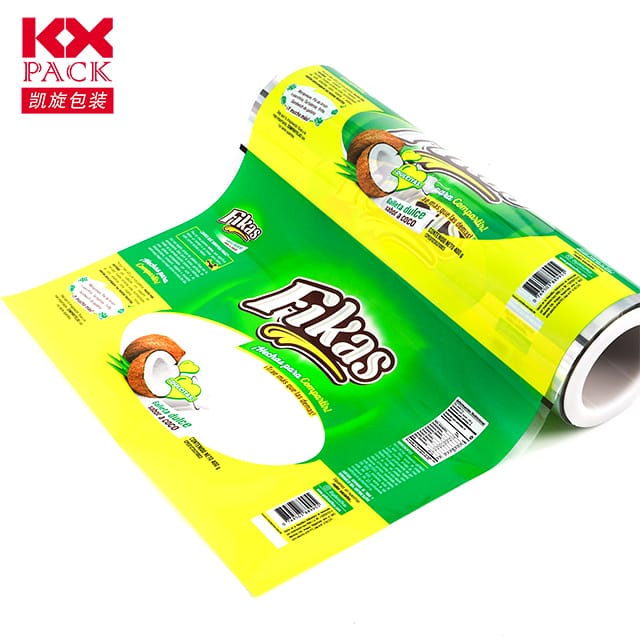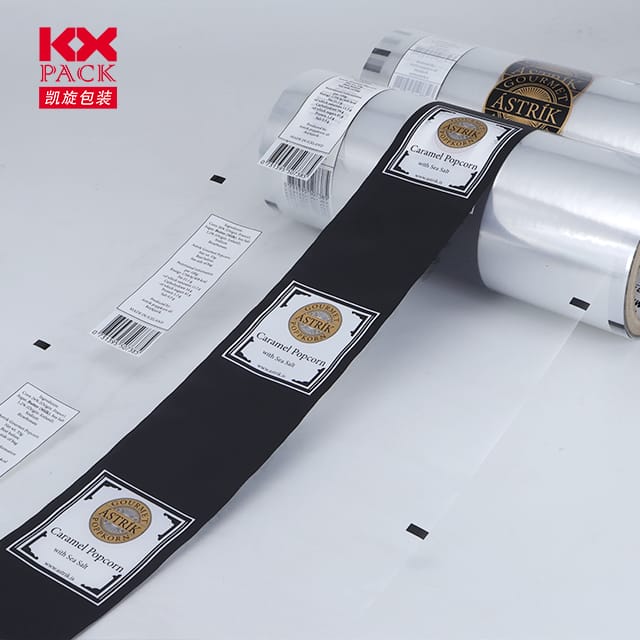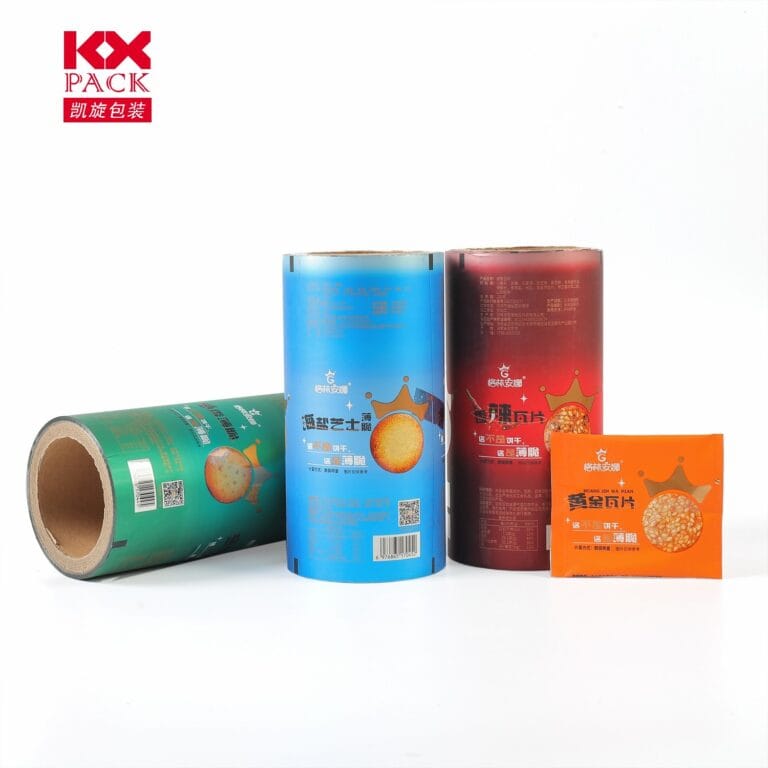Innovaties en duurzaamheid in het dichten van filmvoedselverpakkingen: Een moderne oplossing voor frisheid en gemak
Dekselfolie voor voedselverpakkingen
In de snelle wereld van vandaag, Voedselverpakkingen speelt een cruciale rol bij het waarborgen van productveiligheid, De houdbaarheidsleven verlengen, en het verbeteren van het gemak van de consument. Onder de verschillende verpakkingsoplossingen, dekselfilm voedselverpakking onderscheidt zich als veelzijdig, efficiënt, en steeds meer milieubewuste keuze voor fabrikanten, retailers, en zowel consumenten. Laten we eens kijken waarom dekselfolies een basisproduct worden in de voedingsindustrie en hoe ze zich ontwikkelen om aan de moderne eisen te voldoen.
Wat is dekselfolie voor voedselverpakkingen?
Dekselfolie voor voedselverpakkingen is een flexibel of stijf plaatmateriaal dat wordt gebruikt om containers zoals trays af te sluiten, kommen, of kopjes, het creëren van een hermetische (luchtdicht) of semi-hermetische afdichting. Vaak gebruikt voor kant-en-klare maaltijden, verse producten, zuivelproducten, gebakken goederen, en hapjes, dekselfilms bieden een beschermende barrière tegen vocht, zuurstof, licht, en verontreinigingen. Ze zijn er in verschillende vormen, inbegrepen thermogevormde deksel, afpelbare deksel, En hersluitbare deksel, elk afgestemd op specifieke verpakkingsbehoeften.
Belangrijkste voordelen van voedselverpakkingen met dekselfilm
- Uitgebreide houdbaarheid
Door een luchtdichte afsluiting te creëren, dekselfilms minimaliseren de blootstelling aan zuurstof, wat een primaire oorzaak is van voedselbederf. Dit helpt de versheid te behouden, smaak, en voedingswaarde, het verminderen van voedselverspilling en het verlengen van de levensduur van producten. - Verbeterde productveiligheid
Afdekfolies fungeren als een barrière tegen verontreinigingen, voedsel beschermen tegen fysieke schade, microbiële groei, en externe verontreinigende stoffen. Dit is van cruciaal belang om ervoor te zorgen dat aan de voedselveiligheidsnormen wordt voldaan, vooral in kant-en-klare producten. - Gemak voor consumenten
Afpelbare of hersluitbare dekselfolies bieden gebruiksvriendelijke openingen, waardoor gemakkelijke toegang tot het product mogelijk is en de kwaliteit ervan na het eerste gebruik behouden blijft. Dit gemak is een belangrijk verkoopargument voor drukke consumenten die op zoek zijn naar probleemloze maaltijdoplossingen. - Merkzichtbaarheid en maatwerk
Dekselfilms vormen een uitstekend canvas voor branding, met hoogwaardige printopties waarmee fabrikanten logo's kunnen presenteren, voedingsinformatie, en boeiende graphics. Dit vergroot de aantrekkingskracht van het product en de aanwezigheid in het schap. - Veelzijdigheid tussen producten
Of het nu een magnetronmaaltijd is, een frisse salade, of een yoghurtbeker, dekselfolies kunnen worden aangepast aan verschillende verpakkingsformaten en soorten voedsel, waardoor ze een go-to-oplossing zijn voor diverse productlijnen.(Dekselfolie voor voedselverpakkingen)
Duurzaamheid: De volgende grens
Omdat milieuproblemen centraal staan, de voedselverpakkingsindustrie staat onder druk om duurzame praktijken toe te passen. Fabrikanten van dekselfolie gaan de uitdaging aan door te innoverenmilieuvriendelijke materialen Enrecycleerbare ontwerpen:
- Biologisch afbreekbare en composteerbare films: Gemaakt van hernieuwbare bronnen zoals plantaardige polymeren of zetmeel, deze films breken op natuurlijke wijze af, het verminderen van stortafval.(Dekselfolie voor voedselverpakkingen)
- Gerecycleerde inhoud: Inclusief post-consumer gerecycled materiaal (PCR) het verwerken van kunststoffen in afdekfolies helpt de recyclingkringloop te sluiten en de afhankelijkheid van nieuwe materialen te minimaliseren.
- Dunnere films met hogere prestaties: Vooruitgang in de materiaalkunde maakt lichtere materialen mogelijk, dunnere films die de barrière-eigenschappen behouden terwijl ze minder hulpbronnen gebruiken.
- Monomateriaaloplossingen: Het gebruik van één type polymeer in dekselfilms vereenvoudigt recycling, omdat het de noodzaak van complexe scheidingsprocessen vermijdt.
Innovaties die de toekomst bepalen
- Slimme verpakkingsintegratie
Er worden dekselfilms mee uitgerust Tijd-temperatuurindicatoren (Pa), versheid sensoren, of QR-codes die realtime informatie bieden over de productkwaliteit en traceerbaarheid. Dit voegt een laag van transparantie en vertrouwen voor consumenten toe. - Easy-Peel en hersluitbare eigenschappen
Innovaties op het gebied van lijmtechnologie en filmsamenstelling verbeteren de afpelbaarheid en hersluitbaarheid van dekselfilms, zorgen voor een naadloze gebruikerservaring met behoud van de pakketintegriteit. - Lichtgewicht en bronreductie
Fabrikanten richten zich op het verminderen van de materiaaldikte zonder de barrière-eigenschappen in gevaar te brengen, wat leidt tot lichtere verpakkingen die de transportemissies en -kosten verlagen. - Uitgebreide compatibiliteit met machines
Dekfolies worden ontworpen om naadloos samen te werken met bestaande verpakkingsmachines, het verminderen van de behoefte aan dure apparatuurupgrades en het stroomlijnen van productieprocessen.
Uitdagingen en overwegingen
Terwijl dekselfolie voedselverpakkingen tal van voordelen biedt, uitdagingen blijven bestaan:
- Kosten versus. Duurzaamheid: Milieuvriendelijke materialen hebben vaak een hogere prijs, waardoor het voor kleinere merken een uitdaging wordt om deze te adopteren zonder de kosten door te berekenen aan de consument.
- Recyclinginfrastructuur: Zelfs met recyclebare ontwerpen, het gebrek aan robuuste recyclingsystemen in veel regio's beperkt de milieu-impact van dekselfolies.
- Prestatieafwegingen: Het balanceren van duurzaamheid met functionaliteit – zoals het behouden van barrière-eigenschappen in dunnere films – vereist voortdurende innovatie.
Conclusie
Dekselfolie voor voedselverpakkingen is meer dan alleen een afdichting; het is een dynamische oplossing die tegemoetkomt aan de behoeften van de moderne voedingsindustrie op het gebied van veiligheid, gemak, en duurzaamheid. Naarmate de technologie vordert en de voorkeuren van de consument verschuiven naar milieubewuste keuzes, dekselfilms evolueren om direct aan deze eisen te voldoen.
Door innovatieve materialen te omarmen, slimme verpakkingsfuncties, en duurzame praktijken, Fabrikanten van dekselfolie bereiden de weg voor een toekomst waarin voedselverpakkingen zowel functioneel als milieuverantwoord zijn. Dus, de volgende keer dat u een verzegeld bakje openmaakt of een snackverpakking opnieuw sluit, herinneren: die afdekfolie houdt niet alleen je voedsel vers, het maakt deel uit van een grotere beweging in de richting van groener, efficiëntere wereld.
Wat is uw mening over de toekomst van duurzame dekselfolieverpakkingen?? Deel hieronder uw gedachten! 🌱🍱







